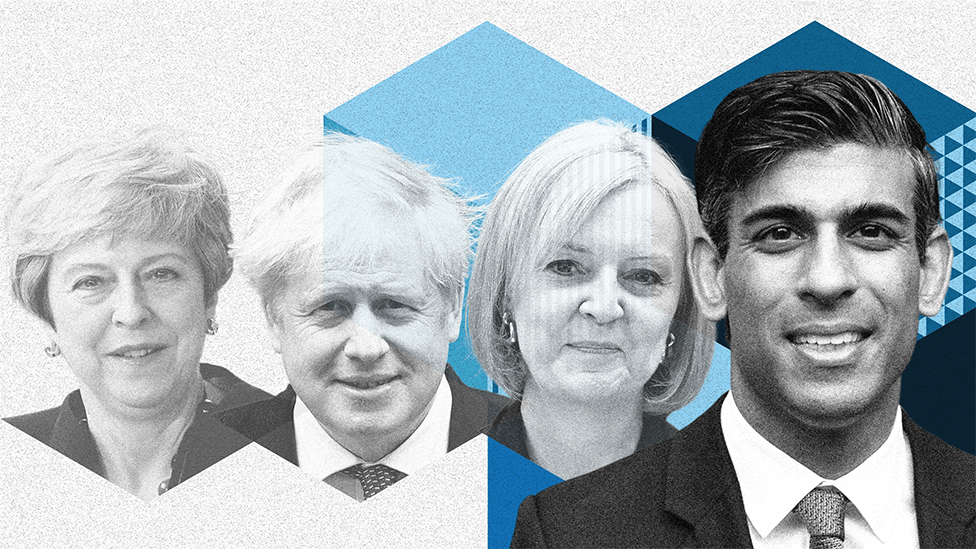Small businesses being 'crucified' by sea border
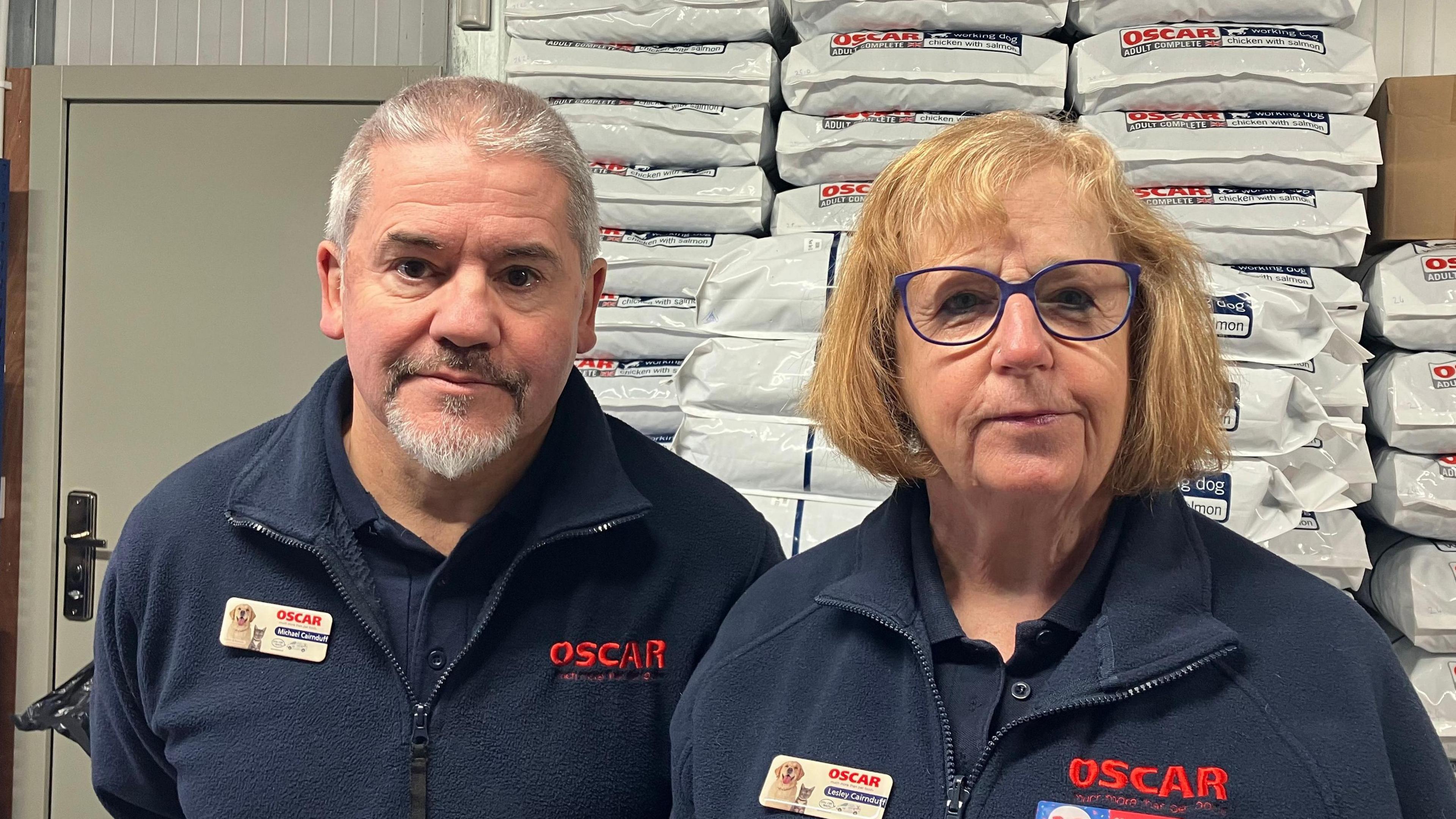
Michael and Lesley Cairnduff said "small businesses are being crucified"
- Published
The assembly will vote this week on whether Northern Ireland's Brexit deal, the Windsor Framework, should continue to operate for another four years.
It effectively keeps NI inside the EU's single market for goods.
That means that the goods trade across the border with the Republic of Ireland, an EU country, has remained undisturbed by Brexit.
The flipside is that goods arriving from elsewhere in the UK are subject to controls and checks—what is known as the Irish Sea border.
Michael and Lesley Cairnduff, who run a County Down-based pet food business, said the paperwork needed was "crucifying" small business like theirs.
Border control post
At Larne Harbour the sea border continues to take physical form, with a new border control post under construction.
Before Brexit, livestock arriving from other parts of the UK was checked here, but this new facility, built to EU specifications, is much bigger.
Businesses have been dealing with new checks and their related bureaucracy since 2021, when the original version of the framework, the Northern Ireland Protocol, began to be implemented.
For many larger firms, the impacts have now mostly been digested.
They have, at a cost, hired the people and put the processes in place to ensure goods keep flowing from GB.
The major UK supermarkets are all still in NI and some continue to expand.
A chief executive of one large agrifood firm told the BBC that the sea border now rarely features in discussions within the business.
However, for smaller firms with fewer resources the sea border remains an unpredictable challenge.
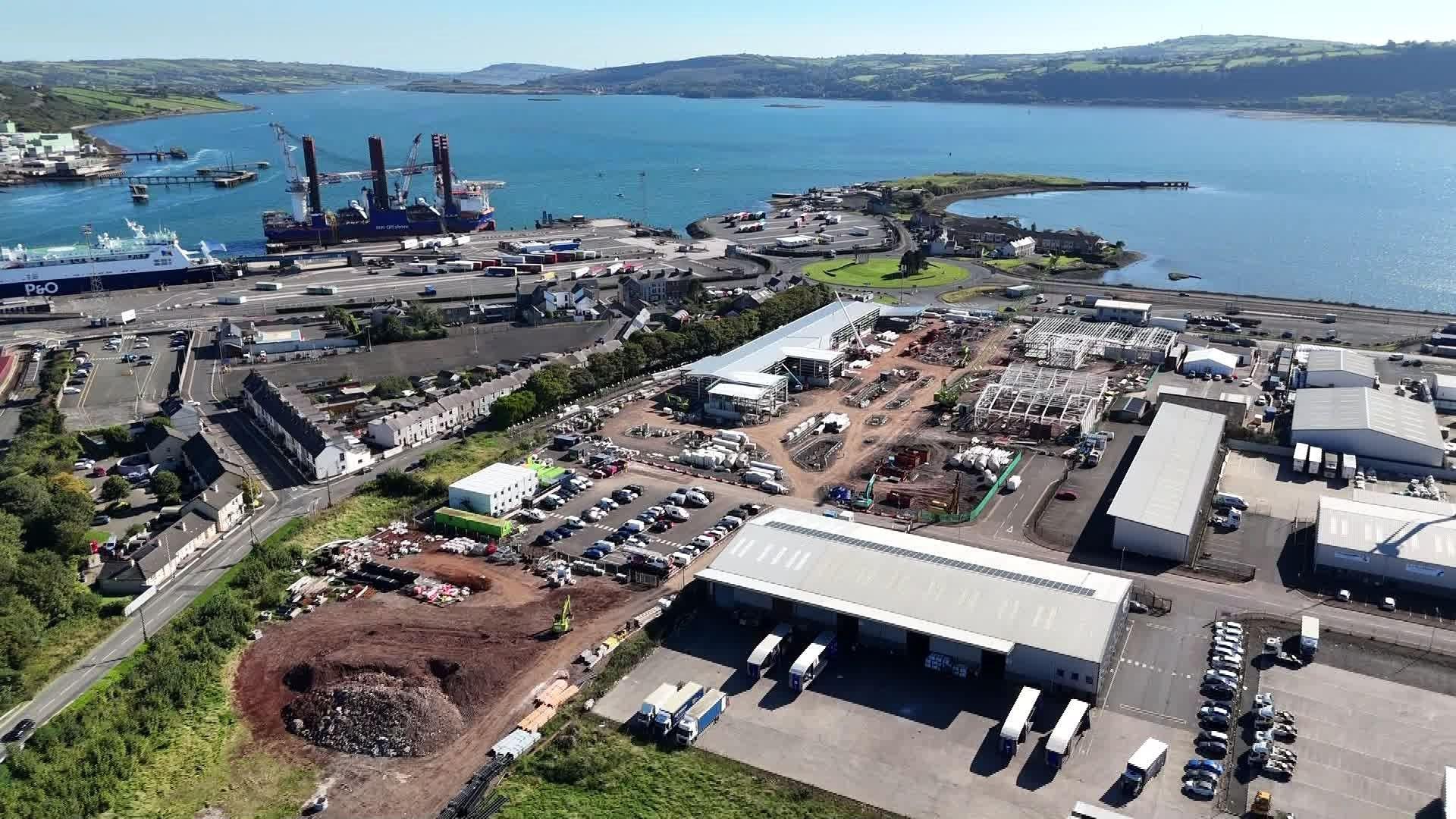
A new border control post is under construction at Larne Harbour
The BBC first spoke to Michael and Lesley Cairnduff at their pet food business in Newcastle, County Down, in 2021.
At that time they had gone around four months without being able to get their supplies across from GB in the normal way, on a commercially shipped pallet.
Their supplier adapted and the goods were able to flow again.
"We were lucky they were supportive," said Mr Cairnduff. "They put all the necessary measures in place."
However, dealing with sea border issues still consumes a huge amount of time.
"We're just not getting the support from the system nor the politicians that was promised," he said.
Ms Cairnduff added: "Yesterday I spent two hours working on problems for a pallet coming in. I shouldn't have to do that. We should be spending our time helping customers, not doing paperwork for pallets."

Former Prime Minister Rishi Sunak said the Windsor Framework made Northern Ireland "the world's most exciting economic zone"
Supply chains
In the early days of the sea border's operation, there were some apocalyptic predictions of collapsing supply chains.
That didn't happen, partially because the deal as originally agreed was never implemented.
The EU eventually accepted that the arrangements for moving food and medicines were going to be unworkable and that NI would have to stay closer to some UK rules.
If there was no sea border bust, then there has been no sea border boom either.
The Windsor Framework means NI has unique dual market access: NI-based manufacturers have better access to the EU single market than firms based in GB, while also retaining full access to the UK market.
It is this arrangement which led the former Prime Minister Rishi Sunak to describe NI as having an "unbelievably special position" and being "the world's most exciting economic zone".
The theory is that any international manufacturer that wants to serve both the UK and EU should set up in NI.
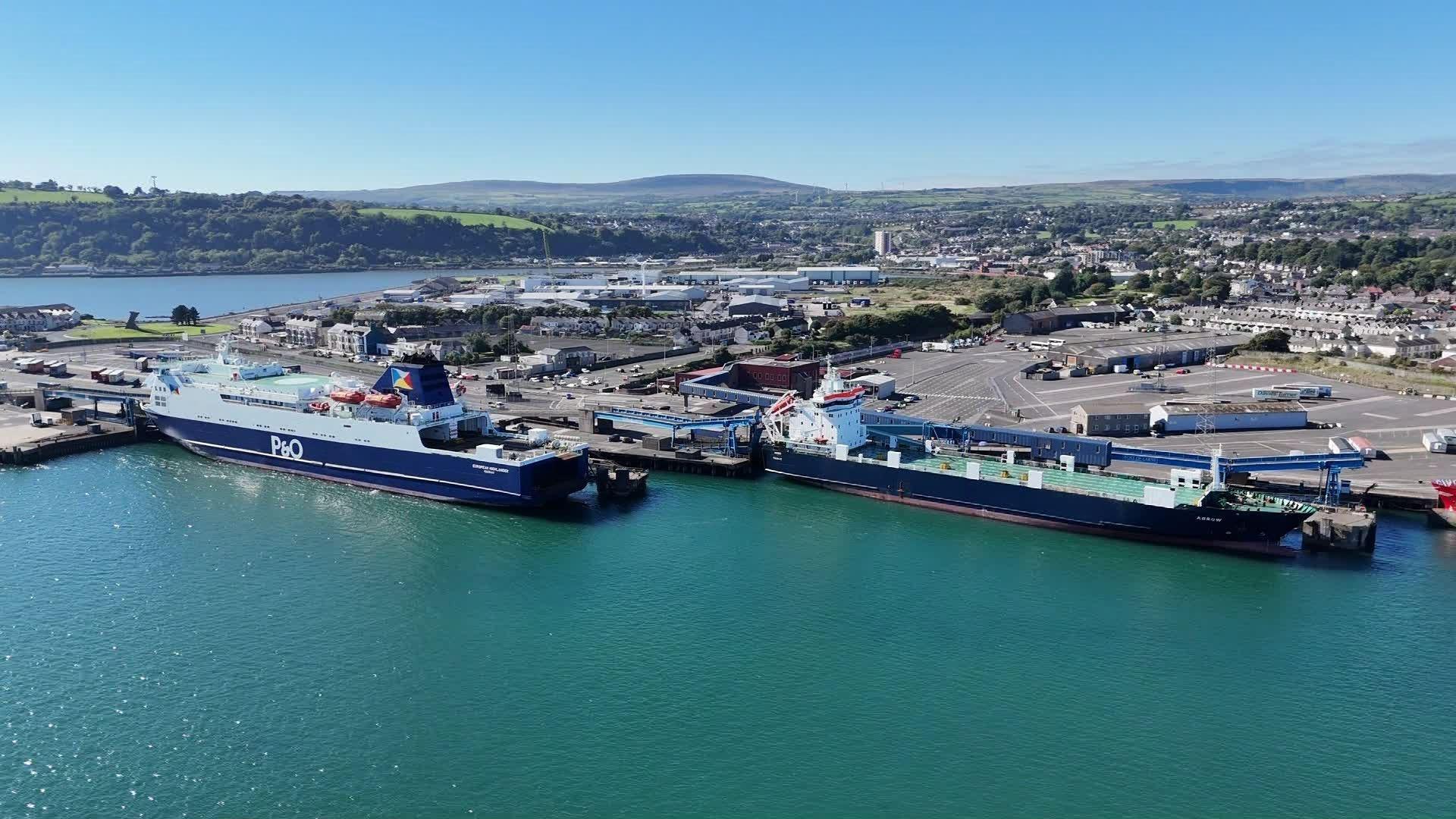
Businesses have been dealing with new checks and their related bureaucracy since 2021
However, the chief executive of NI's inward investment agency, Invest NI, says that hasn't happened yet.
Speaking at Stormont in October, Kieran Donoghue said: "There is still a relatively low level of awareness of the opportunities presented by dual market access.
"There will, in time, be foreign direct investment opportunities."
Stuart Anderson from the NI Chamber of Commerce said it was important to remember that the framework is protecting supply chains which cross the land border, particularly in the highly integrated agrifood sector.
He points to the Department of Economy projections in 2019, which suggested a no-deal Brexit would mean "a material and sustained disruption" to those supply chains.
"Four years on, that's not where we are. The framework has brought the certainty and stability to allow that free flow of trade," he said.
"Some of our members who are exporting to the Republic and further into Europe are taking advantage."
Last week a senior executive at one of NI's biggest manufacturing exporters told Newstalk radio that the Windsor Framework had helped protect access to EU markets.
Robin Black, head of strategic development at Brett Martin, said it meant that "in most regards nothing has changed for us as an exporter which is fantastic news, particularly with all our European markets".
However, Mr Anderson said that while surveys of his members suggest that most are now finding it manageable, a "significant minority" are saying the arrangements remain "an acute challenge".
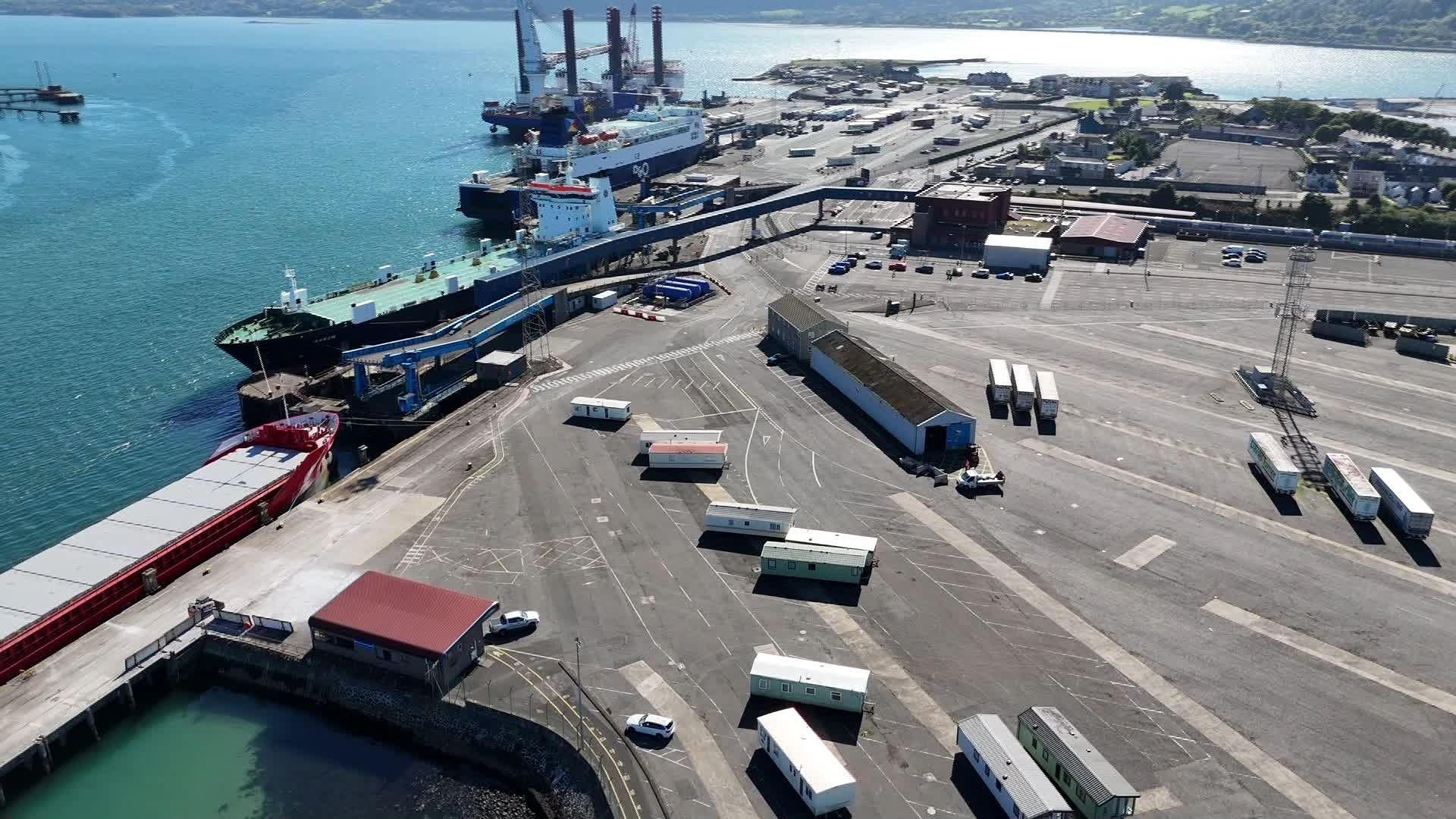
An update in EU product safety rules means some businesses in GB face new rules when selling to NI
It can be hard to see the impact of the sea border in Northern Ireland's economic statistics.
It is most obvious in the trade data, which shows business between the two parts of the island at a record high.
This suggests that some products which NI businesses or consumers were getting from GB are now coming from Ireland or the wider EU.
Official data suggests that NI has had a significantly better recovery from the pandemic than the UK average.
However, that growth has come almost entirely from the services sector, which is not covered by the Windsor Framework.
By contrast, manufacturing output has been flat, with energy costs, skills shortages, and disruptions to global trade seemingly more significant than the benefits of dual market access.
If, as seems likely, the assembly votes for the Windsor Framework to remain, businesses will continue to grapple with the sea border.
At the end of this week we will see that a border is not a fixed and stable set of arrangements.
An update in EU product safety rules, which apply in NI, means some businesses in GB face new rules when selling to Northern Ireland.
The change is a particular challenge for micro businesses selling through online platforms, with some saying they will no longer be able to get their goods across the sea border.
- Published2 February 2024

- Published26 March 2021
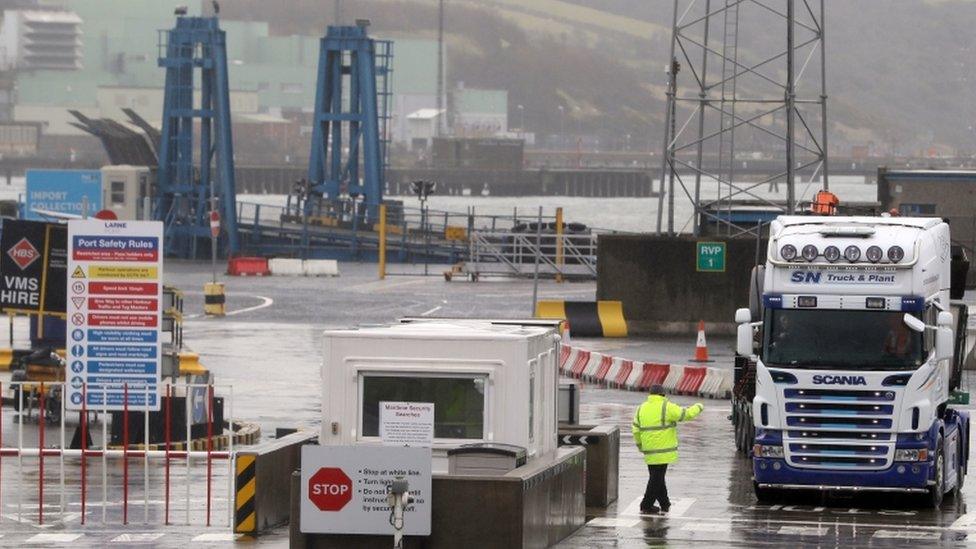
- Published1 June 2024

- Published4 March 2023
